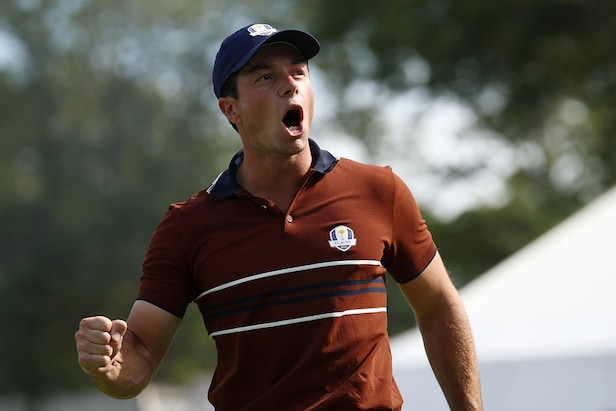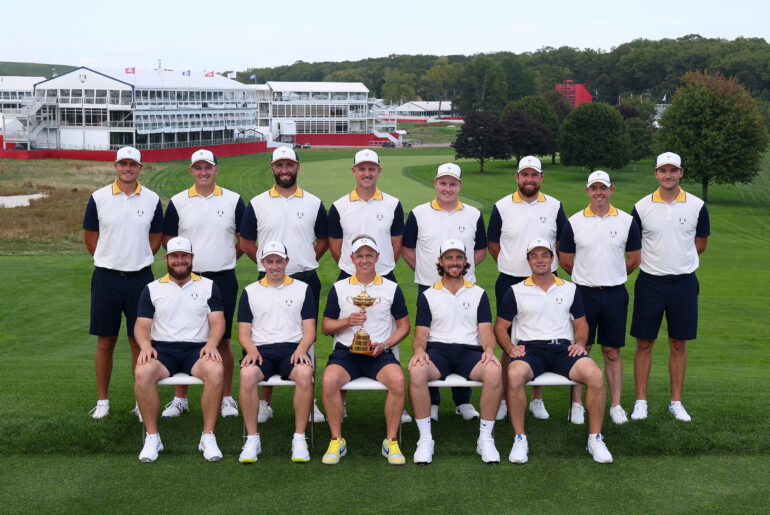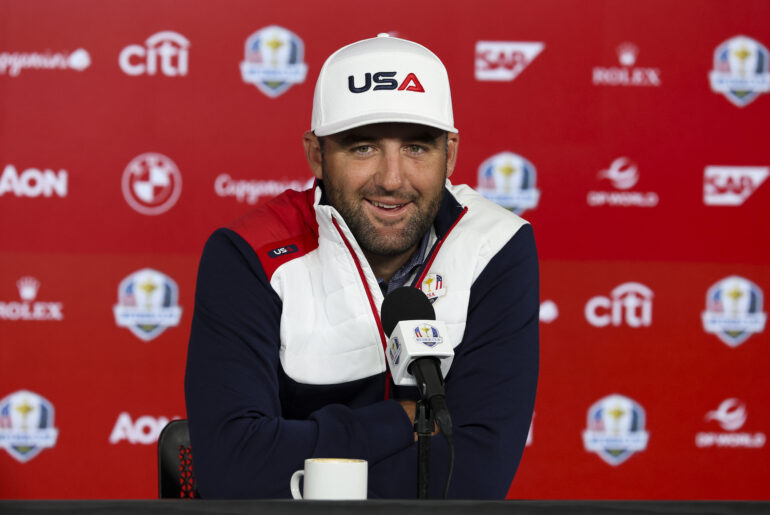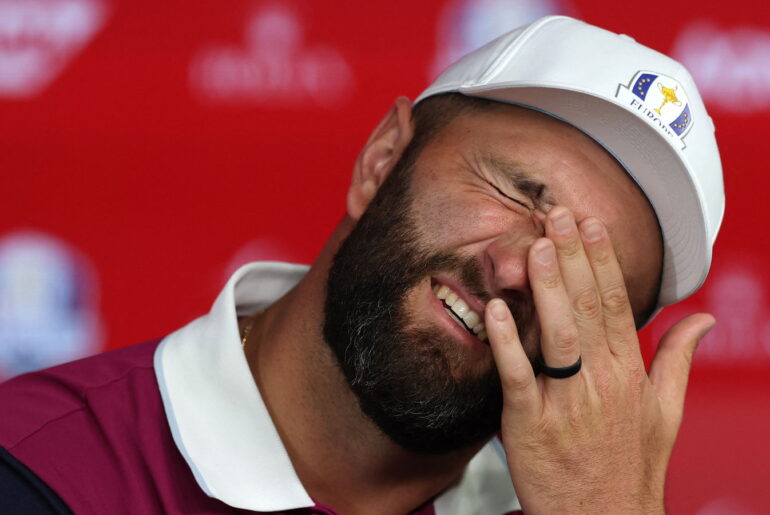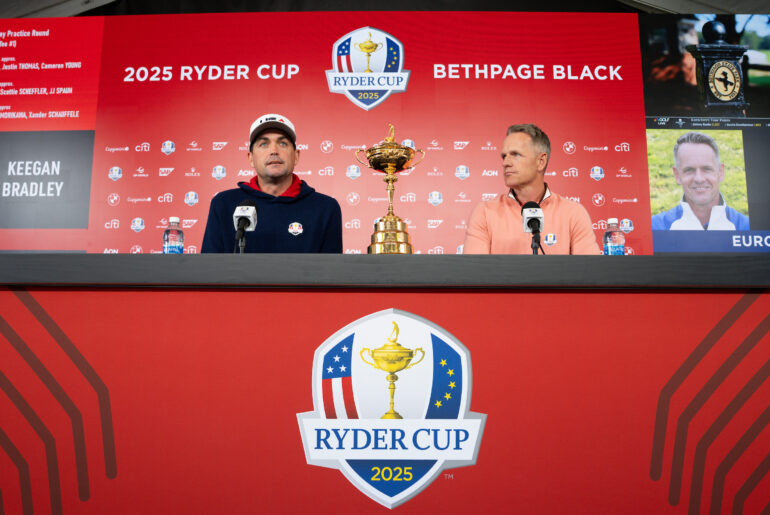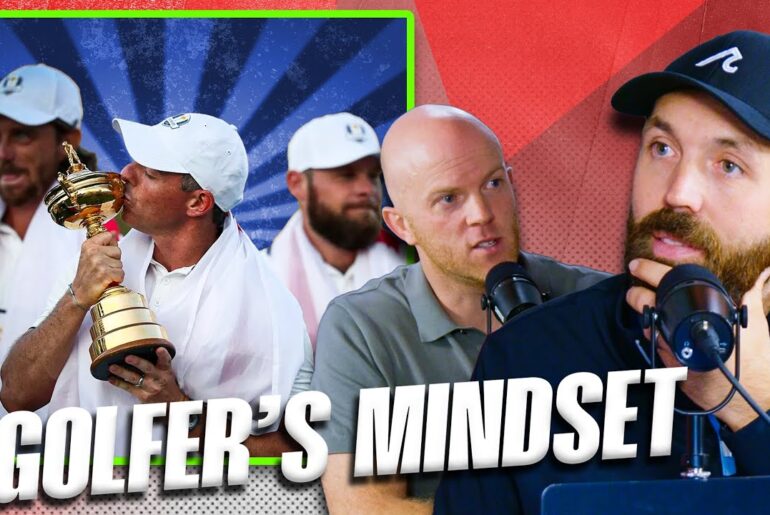Viktor Hovland returns to action this week at the DP World India Championship just a few weeks after pulling out of Sunday Singles at the Ryder Cup with a neck injury. A neck injury that stirred up plenty of debate in the golf world.
Hovland’s withdrawal from the final day at Bethpage Black triggered what’s known as “the envelope rule,” which exists specifically for the situation European captain Luke Donald and American captain Keegan Bradley found themselves in. When captains make their team selections for Singles play, they must provide a sealed envelope containing the name of one player who is regarded as having been paired against a player who, through illness, injury or another emergency reason, has to withdraw from the other side.
Advertisement
RELATED: I never noticed how many pros do this—until I started looking
Bradley paired Harris English against Hovland in the final match, and when Hovland decided to pull out, that meant English also had to sit out and each team would be awarded half a point. As the U.S. mounted a comeback and the score grew closer, the takes began to fly. This was unfair to the American side. Why don’t they get the full point since it was the European’s player who couldn’t play? How is there not a reserve player for this situation? Never mind the fact that the rule has existed since 1979, or the fact that it helped the U.S. side win the 1991 Ryder Cup at Kiawah Island when Steve Pate was injured in a car accident the night before the competition and his bruised ribs prevented him from playing in Sunday Singles (the U.S. won that year, 14½-13½).
Ultimately, Europe would have triumphed at Bethpage Black with or without the rule, having won by a score of 15-13. But that doesn’t make Hovland feel any less bad about the whole ordeal.
“The whole situation was pretty upsetting,” Hovland said. “Just the fact that I didn’t get to play, and I felt really bad for Harris, who also didn’t get to play a match, even though there was nothing wrong with him. He just didn’t get to play, and he was upset about that, and I feel very bad for not being able to compete.
Advertisement
“It’s tough. I think we’re so used to in sports that if you can’t play because you’re hurt, obviously that should be a loss of point. But I think in the spirit of the Ryder Cup and the spirit of the game and the history of it, knowing that this Ryder Cup is just a part of many, many Ryder Cups to come, I think it’s more of a gentlemen’s agreement that OK, you were hurt this time and maybe the next time there’s a guy on the U.S.’s team and we’re all kind of sympathetic about the person being hurt and not being able to play.”
RELATED: Brandel Chamblee fired another shot at Bryson DeChambeau
Two years after Pate pulled out at Kiawah, Europe’s Sam Torrance could not play Sunday Singles at The Belfry due to an infected toe. America’s Lanny Wadkins volunteered to sit out and, much like Europe in 2025, the U.S. side would have won anyway with the score being 15-13. That remains the last time the American team won on away soil.
In other words, it’s happened before and it’ll happen again. And, as Hovland went on to explain, it’s not something either team wants to use to gain any sort of advantage.
Advertisement
“I think there’s kind of a mutual understanding that if we were healthy we would all go out there and play,” he said. “I don’t think people are using that to really finagle the system and try and squeak by.”
Following his team’s close loss, American captain Keegan Bradley called for the rule to be changed, while European captain Luke Donald pointed to the fact the rule is the rule, and that’s why they have a captains’ agreement. Hovland tends to agree.
“If you do change the rule and you give away a point, now there’s also the angle that OK, knowing that the other team is going to put out their best player most likely in the first few groups, they can just kind of put me out as a sacrificial lamb and take the L against their best player,” Hovland said. “So there’s other ways around it, and I think … I don’t think there’s any ideal way to do it. … I think that’s just a better way overall to do it, even though it’s just a tough situation, and at the end of the day, I think we’d all be wanting to go out there and play.”
As for his health, Hovland says he took a week and a half off after Bethpage and did not touch a club. He then played back-to-back 18-hole rounds and his neck felt fine, allowing him to make the trip to India and tee it up this week.
RELATED: Why Jon Rahm just finished one of the weirdest years in golf history

